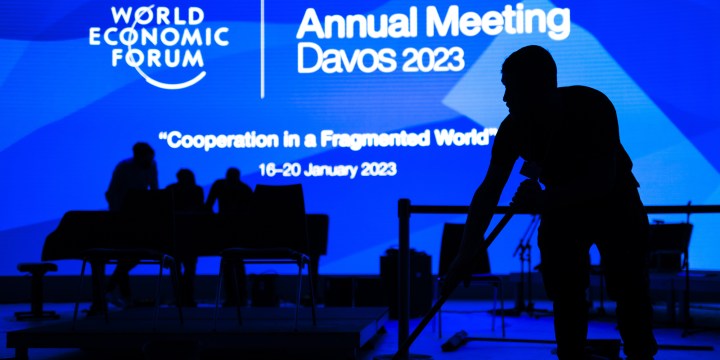International Finance
The fog of war – and economics – at Davos

Canadian-American economist John Kenneth Galbraith said there were two kinds of forecasters: those who don’t know, and those who don’t know they don’t know. The contradictions and difficulties faced by economists have never been easy; employed to make forecasts, they make forecasts, and then they are ridiculed endlessly because of the forecasts they were forced to make.
And then the jokes arrive: “What happens when you put 10 economists in a room? You’ll get 11 opinions.” Actually, if we are honest, you get a lot more than that.
The fact is that all forecasting is difficult and we should be grateful that some people still try. Predictions are especially demanding, as they say, when they concern the future.
But even if you factor in the normal challenges involved in economic forecasting, it’s very obvious that the past year and the current one are just mind-bogglingly tricky to predict. Consider for a moment the predictions of the International Monetary Fund at the start of the year.
In its October edition of the organisation’s flagship publication, the World Economic Outlook, it predicted in September 2021 that global growth would be just below 5%. This prediction was reduced in every successive quarterly outlook and now it seems likely it will come in at 2.7%.
That doesn’t seem like a big miss, but it’s massive. It means the IMF was expecting the world to have grown around $2.5-trillion more than it has. The expectation was for a normal year; the result was far below average.
Having made the mistake of being overly optimistic, what do you do? Well obviously, you default to extreme pessimism. And, as if on cue, the World Economic Forum released today its economic prospects for 2023, and they are very gloomy. I mean really gloomy.
But if you look closer, they are also a bit of a hotch-potch. Overall, about two-thirds of respondents to the WEF’s survey think a global recession is “likely” in 2023. Of those, 18% consider it “extremely likely”, which is twice as many people who answered that way in September 2022.
This is not a survey to be dismissed lightly; the economists participating come from all of the biggest banks in the world; in other words, they are from institutions with lots of skin in the game. When the IMF is wrong, it loses credibility; when bankers are wrong, they lose money.
What are they seeing here? Well, the obvious. They are observing inflation forcing central bankers to boost interest rates to engineer a downturn hoping to kill off the beast. More specifically, they are imagining the possibility of the evils coming home to roost: highly-indebted companies struggling to refinance debts; over-extended households having to cut back, and all the other constraints, including constricted supply chains, high commodity prices, and so on.
But here is the odd thing: one-third of respondents think a global recession will be “unlikely” this year. But even they expect weak growth in Europe and the US by huge proportions: 100% of chief economists and 91% in each region, respectively.
That seems very gloomy, but the upside is that even those who anticipate recession believe it will be light, for the simple reason that since central banks are the agents of the decline in growth, they can course correct very quickly.
And there are other oddities: Respondents were evenly split over whether labour markets will remain as tight over the coming year given the tepid growth prospects. That’s kind of weird; if there is a recession, surely labour markets will loosen.
Weirdly, too, house prices in the US are holding up and despite the inflationary increases passed on by producers around the world, well, people carried on buying. So now we have the mystifying result that, just to take one example, one of the largest US egg producers, Cal-Maine Foods, doubled its profits last year. Go figure.
And there is one big event pressing in the opposite direction; China’s new approach to Covid-19 and the sudden about-turn on its “zero tolerance” policy.
On the same day as the WEF predictions were released, by coincidence, the news highlighted two things: China’s growth for the year was announced as just below 3%, its lowest since 1976 (the year that Mao Zedong died), apart from the Covid-crisis year of 2020. Also in the news, was the first acknowledged drop in the Chinese population in 60 years.
But in the short term, the Chinese re-opening is, economically speaking, very good news. In fact, the WEF was addressed today by Vice Premier Liu He. A more upbeat speech you couldn’t really imagine. “China will always promote all-round opening up, and improve the level and quality of opening up,” he said. He called on his Davos “friends” to come and visit China. He mentioned international cooperation 11 times. He called for world peace!
It was a surprisingly outspoken pitch for more trade, investment, and general global goodwill.
What is one to make of all of this? I think we should just be honest and say we don’t know, and more than that, that we know that we don’t know.
We normally don’t know, but at this juncture, we really don’t know. And we should know that.
Good investing!
Tim Cohen


















 Become an Insider
Become an Insider
Comments - Please login in order to comment.